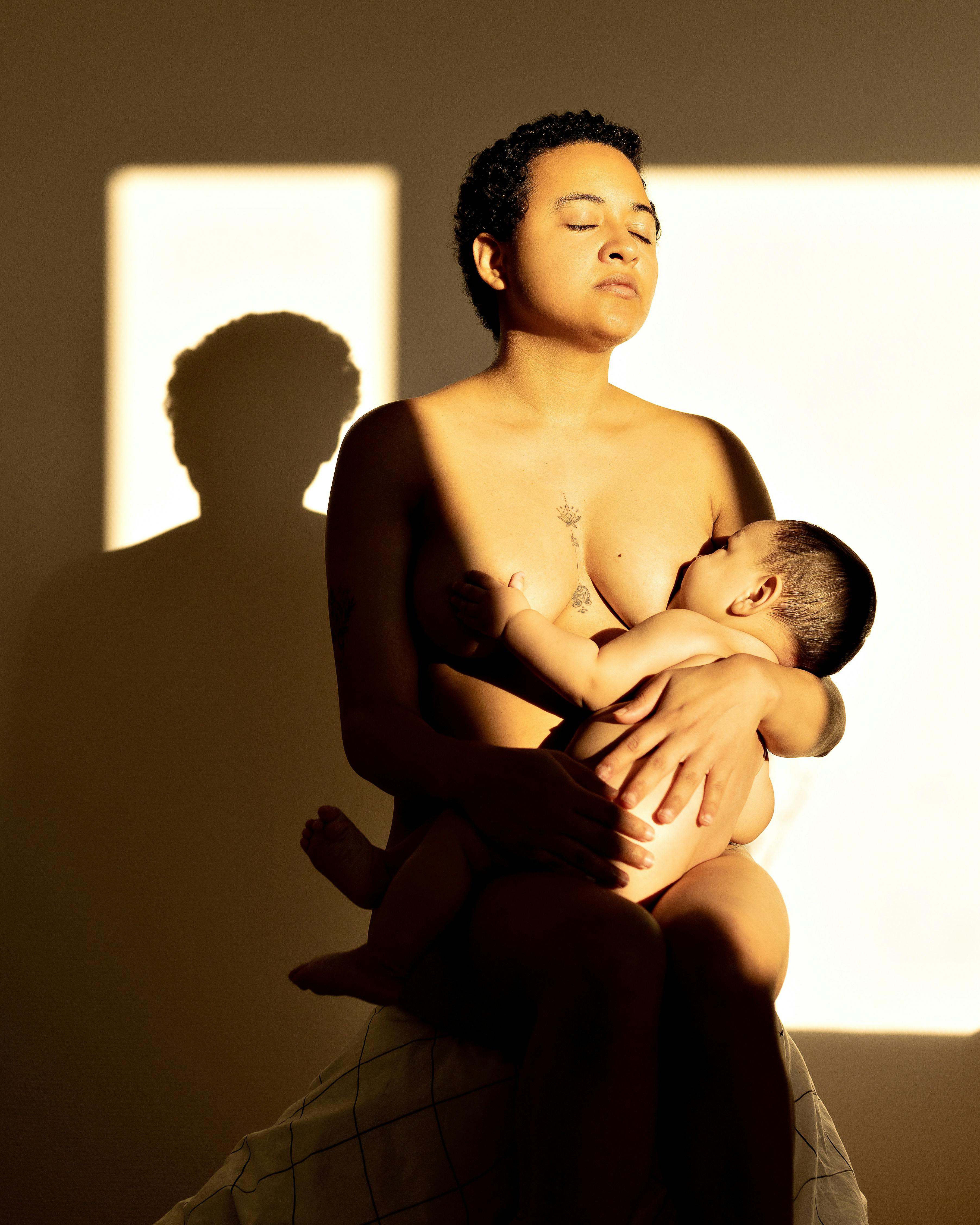How to Properly Donate Eggs for 2025: A Smart Guide
Donating eggs is an incredible act of generosity that significantly impacts the lives of individuals and couples facing infertility issues. For those considering becoming an egg donor, understanding the egg donation process is crucial. In this guide, we'll cover everything you need to know about how to donate eggs, from the basic requirements and compensation to the emotional and legal aspects involved in the journey. You’ll also find tips based on the personal experiences of previous donors. By the end of this article, you will have a comprehensive roadmap to navigate your donation journey effectively.
Egg donation is about more than just providing eggs; it's a commitment to help families grow. With advancements in fertility treatments like in vitro fertilization (IVF), donor eggs have become a vital resource. This guide aims to empower you with the knowledge you need to make informed decisions while considering your own well-being. Key takeaways include understanding donor eligibility, finding a fertility clinic, and navigating the emotional landscape of egg donation.
Understanding the Egg Donation Process
The journey of donating eggs begins with understanding the egg donation process and its intricacies. This process typically involves several stages, including application, screening, and the actual donation procedure. The first step for potential donors is to conduct thorough research about clinics and egg donation agencies that align with their values and goals.
Egg donation clinics provide resources and guidance throughout the donation cycle. This includes pre-donation counseling, legal advice, and information about what to expect during the egg retrieval procedure. It's essential to choose a reputable agency. Be sure to explore various fertility clinics near me to find the right fit for your needs.
The egg donation process overview typically encompasses:
- Initial registration and application
- Comprehensive screening for health and eligibility
- Legal agreements and consent forms
- Egg retrieval procedure
- Post-donation aftercare
Being fully informed can help ease any anxieties about the process. As you move forward, remember there are emotional aspects of egg donation that may come into play, so consider speaking with support groups or mentors.
Egg Donor Requirements
To become an egg donor, you must meet specific eligibility criteria. Most fertility clinics will consider factors such as age, health status, and family medical history. Generally, suitable candidates are women aged 21 to 34, as they tend to have the best egg quality and health.
It’s crucial to maintain a healthy lifestyle, as it directly impacts your eligibility and the quality of the eggs you donate. Clinics may require a comprehensive medical examination, which involves various medical tests for egg donation, including blood tests, ultrasounds, and hormone level assessments.
Evaluating Egg Donation Compensation
While many women choose to donate eggs purely out of altruism, it's essential to understand the financial aspect as well. Compensation for egg donors can vary widely based on several factors, including location, agency, and the donor's experience level. Typically, donors can expect compensation ranging from $5,000 to $10,000 per cycle, depending on these variables.
Understanding egg donation fees and payment structures is vital. This can help you gauge the feasibility of the process and ensure it aligns with your financial expectations. Be wary of agencies that promise unusually high compensation, as they may not adhere to ethical standards.
Choosing the Right Egg Donation Clinic
Selecting a fertility clinic is one of the most critical decisions in the egg donation journey. Start by researching egg donation agencies and reading testimonials from previous donors. Look for clinics that offer comprehensive support services, donor education, and transparency in their processes.
Another essential aspect is ensuring the clinic is accredited and has a solid track record of success rates with their donor egg IVF programs. Visit potential clinics and meet the staff to discuss your concerns and get a feel for the environment. This will help you make a well-informed choice that fits your unique needs.

The Egg Donation Cycle: What to Expect
Once you have chosen a clinic, understanding the specific steps involved in the egg donation cycle can help you prepare for the journey. The egg donation cycle typically includes hormonal treatments to stimulate the ovaries, leading to the maturation of multiple eggs. Here’s a breakdown of what you can expect:
Hormonal Treatments and Monitoring
The first phase involves hormonal treatment to facilitate the growth of multiple follicles. This phase usually lasts for about 10-14 days. Regular monitoring through blood tests and ultrasound exams ensures that the follicles are developing properly. This is one of the critical steps in the egg retrieval procedure. It's important to adhere to the prescribed medication regimen and attend all scheduled appointments.
Egg Retrieval Procedure
The egg retrieval procedure typically takes about 20-30 minutes. It is performed under sedation to minimize discomfort. A healthcare provider will use a thin needle to extract the eggs from the ovaries, guided by ultrasound. Understand that while the procedure is generally safe, it does come with some risks, such as bleeding or infection, which your clinic will explain in detail.
Post-Donation Aftercare
Post-donation aftercare is equally essential. Your clinic will provide guidelines for recovery, which may include rest, hydration, and monitoring for any unusual symptoms. Staying in close communication with your healthcare provider during this time ensures a safe and smooth recovery process.
Possible Complications of Egg Donation
While donating eggs is often a safe procedure, it's crucial to be aware of potential complications. Some donors may experience symptoms such as bloating, pelvic pain, or hormonal imbalances. If you notice any severe symptoms, contact your clinic immediately to discuss your concerns.
Navigating Legal Aspects of Egg Donation
The legal framework surrounding egg donation can be complex, and understanding your rights is essential. Before retrieving your eggs, you will be asked to sign several agreements that outline the terms of your donation, including rights to anonymity and potential use of your eggs.
Understanding Donor Contracts
Familiarize yourself with donor contracts provided by the fertility clinic. These contracts cover payment structures, confidentiality agreements, and rights regarding the use of your donated eggs. It's vital to clarify any uncertainties with your clinic or seek independent legal counsel if necessary.
Professional Advice Regarding Egg Donation
Consulting with a legal expert in reproductive health can provide additional security and peace of mind as you navigate the donation process. They can help address any concerns regarding your rights and responsibilities, ensuring you’re protected throughout your donation journey.
Privacy and Confidentiality Concerns
Many egg donors seek anonymity, either for personal reasons or to maintain a boundary with the recipients of their eggs. Understanding the implications of confidentiality agreements before you proceed is crucial. Discuss with your clinic how they manage donor-recipient relationships and anonymity, ensuring your preferences are respected throughout the process.

Emotional Aspects of Egg Donation
The emotional impact of donating eggs can be significant. While many donors report feelings of pride and fulfillment, it's also normal to experience a range of emotions during and after the donation process. Addressing these feelings is crucial for your emotional well-being.
Preparing for Emotional Responses
Anticipating the emotional responses you may encounter can help you cope more effectively. Create an open line of communication with your support network, whether it's friends or family, who can help you process your feelings. If necessary, consider seeking professional counseling services specifically geared toward egg donors.
Support Systems for Egg Donors
Finding emotional support can significantly enhance your donation experience. Many clinics offer support programs and resources tailored for egg donors, including workshops, one-on-one counseling, and forums where you can connect with other donors. Engaging in these communities can foster a sense of understanding and shared experience.
Sharing Personal Experiences
Connecting with other donors by sharing personal stories can provide valuable insights and emotional relief. Many donors find solace in hearing testimonials about others' journeys, fostering a feeling of solidarity. Consider participating in egg donation seminars or local support groups to listen to and share experiences.
Addressing Myths About Egg Donation
There are many myths surrounding egg donation that can cause anxiety or uncertainty for potential donors. Addressing these concerns educates and reassures those considering this noble act. Speak with your clinic to dispel any myths and gather detailed information about what it means to be an egg donor.
Common Questions About Egg Donation
As you venture into the world of egg donation, it’s only natural to have questions. This section addresses some of the most common inquiries surrounding the egg donation process.
What Is the Egg Donation Timeline?
The timeline from application to the actual donation typically spans several months, depending on various factors like clinic schedules and response times. After applications are received, the screening process can take a few weeks, followed by hormonal treatments leading up to egg retrieval, which may take an additional month.
What Are the Risks Involved in Egg Donation?
While the risks associated with egg donation are generally low at reputable clinics, they do exist. Understanding these risks can help potential donors make informed decisions. Risks may include ovarian hyperstimulation syndrome (OHSS), which can lead to complications if not monitored correctly.
Can Egg Donation Be Done for Singles?
Yes, egg donation can be a beautiful way for singles to create families. Many clinics have options for single parents, offering them support, guidance, and the resources needed to navigate the process successfully. It’s important to discuss these options with your fertility clinic to find the best fit for your situation.
Are There Financial Aids Available for Egg Donors?
Some agencies and clinics offer financial aid or assistance for donors facing economic hardship. Understanding what financial support is available can alleviate stress and enhance your donation experience. Always ask about financial incentives and support when you communicate with potential clinics.
Egg Donation Benefits: More Than Just Compensation
While compensation is an important aspect, the benefits of egg donation extend beyond financial incentives. Donating eggs offers numerous advantages that contribute to a fulfilling experience.
Personal Fulfillment and Helping Others
Many donors report an overwhelming sense of personal fulfillment knowing they are helping someone realize their dream of parenthood. This altruism can lead to a deep emotional connection to the act of giving, transforming it into a meaningful life experience.
Building Connections
Connecting with recipients or support groups can foster a sense of community. Many donors appreciate the relationships formed during this journey, whether it's through friendships with fellow donors or interactions with families looking to welcome a child.
Educational Opportunities
Egg donation can provide educational experiences about fertility and reproductive health that many may not have considered. Gaining insight into these subjects can empower donors to make informed choices regarding their own reproductive health in the future.
Success Stories and Testimonials
Through the lens of personal experiences, potential donors can gain insight into the positive impacts of egg donation. Many clinics share success stories involving thriving families that highlight the unique role egg donors play in these journeys. Hearing these testimonials can encourage others to consider the process.
In conclusion, becoming an egg donor is an impactful and rewarding decision. By understanding the process, addressing emotional concerns, and connecting with the right resources, you can navigate your egg donation journey successfully.
Its part of generated content. Can i generate another part?